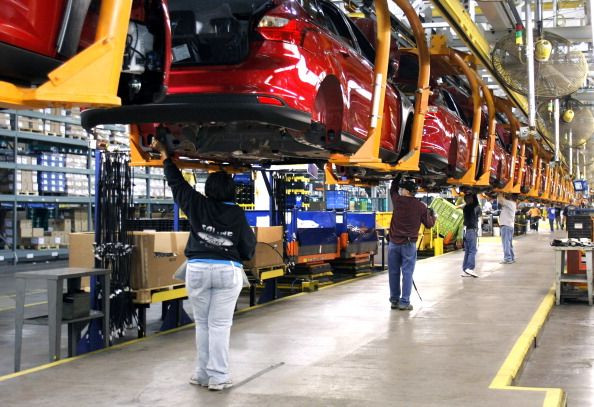Is President Trump's Tax Reform Creating Jobs In The United States?

Will the new tax reforms prove to be a boon for the employment sector in the United States? Will it actually have a dramatic effect on jobs as promised by President Donald Trump and Republicans in the House of Representatives? It might be too early to predict anything, but the trend seen so far in the job sector this year shows there are reasons to cheer.
The Tax Cuts and Jobs Act, that came into effect Jan. 1, promised permanent tax break for corporations and temporarily cuts rates for individuals. According to the Committee on Ways and Means, the act will “help create more jobs, increase paychecks, and make the tax code simpler and fairer” for everyone.
Recently, the Fiat Chrysler Automobiles (FCA) announced its decision to move its Ram Heavy Duty truck production to the U.S. from Mexico. The company said Jan. 11 it will invest more than $1 billion to modernize its truck assembly plant in Warren, Michigan, and added it will create 2,500 new jobs at the factory.
The company credited the passage of tax reform, which cut the corporate rate from 35 percent to 21 percent, for the move.
“These announcements reflect our ongoing commitment to our U.S. manufacturing footprint and the dedicated employees who have contributed to FCA’s success,” Sergio Marchionne, chief executive officer of FCA, said in a press release. “It is only proper that our employees share in the savings generated by tax reform and that we openly acknowledge the resulting improvement in the U.S. business environment by investing in our industrial footprint accordingly.”
Trump responded to the move on Twitter.
In another such move, Toyota Motor Corp and Mazda Motor Corp said Jan. 10 they will build a $1.6 billion assembly plant in Huntsville, Alabama. The Japanese multinational automakers believe the joint initiative will be able to provide jobs to 4,000 people in the U.S., Reuters reported.
The plant will produce 300,000 cars and SUVs a year and the facility will come up on a 2,500-acre former cotton field by the year 2021.
Trump welcomed the initiative and said it was a “good news.” He said in a tweet, “Companies are coming back to the U.S. in a very big way.”
Similarly, multinational retail giant Walmart on Thursday announced it will start paying its employees in the U.S. at least $11 an hour from February. The company said the hike was possible due to the recent tax reforms.
Before giving all the credit for the positive trend to the new tax reforms, it may be worth mentioning the employment sector started signaling towards a better future from December itself. A report released Jan. 4 by ADP Research Institute showed the U.S. private companies added 250,000 jobs in December 2017. This was the biggest monthly increase since March.
However, it’s not only good news. Carrier Corporation announced Thursday its decision to lay off 215 workers at its Indianapolis heating and air conditioning plant. The move follows its decision to shut its factory in Indianapolis, Indiana, and move its operations to Monterrey, Mexico. After talks with Trump and Mike Pence, then the president-elect and vice president-elect, the company said it would retain its furnace manufacturing unit in Indiana, preserving 1,000 jobs. This week's layoffs left about 730 workers still employed at the plant. The company had already, in July, laid off 340 workers at the plant, USA Today reported.
Though Walmart announced a pay hike, its decision to close 10 percent of its Sam's Club wholesale stores will badly affect the jobs of thousands of workers. Walmart on Thursday said it will close down 63 of its 660 Sam's Club stores. Sam's Club, which is named after Walmart's founder Sam Walton, is a membership-only retailer that sells bulk merchandise to small business enterprises.
Correction, 1/12: This story originally failed to note that after announcing the closure of its Indianapolis operations in late 2016, Carrier decided to retain some of its manufacturing there.
© Copyright IBTimes 2024. All rights reserved.




















